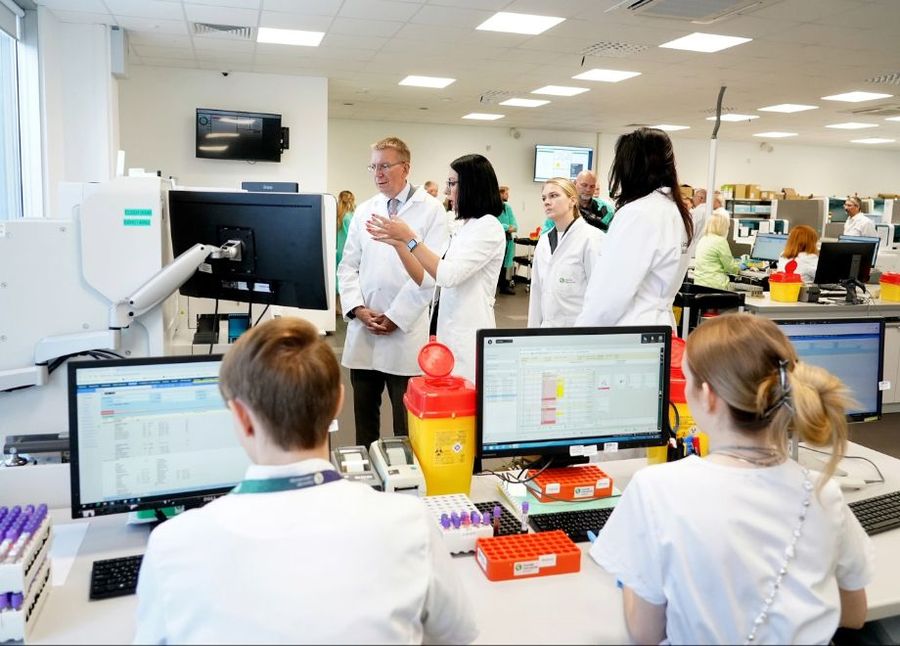On 11 September, the President of Latvia, Edgars Rinkēvičs, visited the newly opened, state-of-the-art facility opened by Centrālā laboratorija in Riga, 4a Grēdu Street – the most modern laboratory in the Baltics – where in the first week of September the one-millionth test referral had already been processed. During the visit, the President, together with the company’s management and sector experts, learned about the laboratory’s operations, the latest technologies in medical testing, and the crucial role laboratory diagnostics play in the overall healthcare system.
The discussions also touched on trends in the healthcare sector, the company’s future goals and its contribution to public health, as well as national resilience.
The new automated laboratory of Centrālā laboratorija, created with an investment of €4.2 million, represents one of the most significant private-sector contributions to Latvia’s healthcare system in recent years. These investments are particularly important given that around 70–75% of medical diagnoses and treatment decisions directly depend on laboratory test results.
“High-quality and accessible laboratory diagnostics are not only a benefit for each individual patient’s health but also a cornerstone of the healthcare system as a whole. Reliable medical data form the basis of patient treatment and serve as a starting point for sound sector policy decisions, epidemiological monitoring, and efficient resource planning. Research shows that every euro invested in laboratory diagnostics helps save an average of €6.50 in later stages of healthcare. Our daily work, investments in new technologies and accessibility of services clearly demonstrate that the private sector can make a vital contribution to national infrastructure, ensuring access to the highest-quality services for every resident of Latvia,” said Zane Kaktiņa, Chair of the Board of Centrālā laboratorija, thanking the President for his interest and the high appreciation he expressed for the team’s work during the meeting.
Thanks to automated and AI-assisted technologies, testing capacity has increased by 50% – the new laboratory can now perform up to 5,000 tests per hour – while turnaround time for results has been reduced by a quarter. The establishment of the automated laboratory has also freed up additional resources for research and the introduction of new tests not previously available in Latvia. Among these are a genetic risk test for diabetes and obesity, molecular diagnostics for syphilis, immunohistochemical analysis of skin samples for the diagnosis of polyneuropathy, a new method for detecting urinary tract infections within 3–6 hours (compared with 2–3 days previously), and several others.
“Automation ensures quality control at every step, faster result processing, even more accurate test outcomes, and broader testing opportunities, allowing patients to manage their health more effectively. Our long-term goal is to continue developing innovative testing methods as well as to introduce new preventive medical tests that help people understand their health risks and plan lifestyle changes to prevent the onset of disease. Such an approach can significantly reduce morbidity and save thousands of lives,” emphasized Dr Jana Osīte, Head of the Laboratory at Centrālā laboratorija.
During the meeting, Centrālā laboratorija also introduced the President to the involvement of its staff in scientific work and research, for example in studying new biomarkers for the early detection of cancer, including breast cancer, lung tumours and sarcomas.
